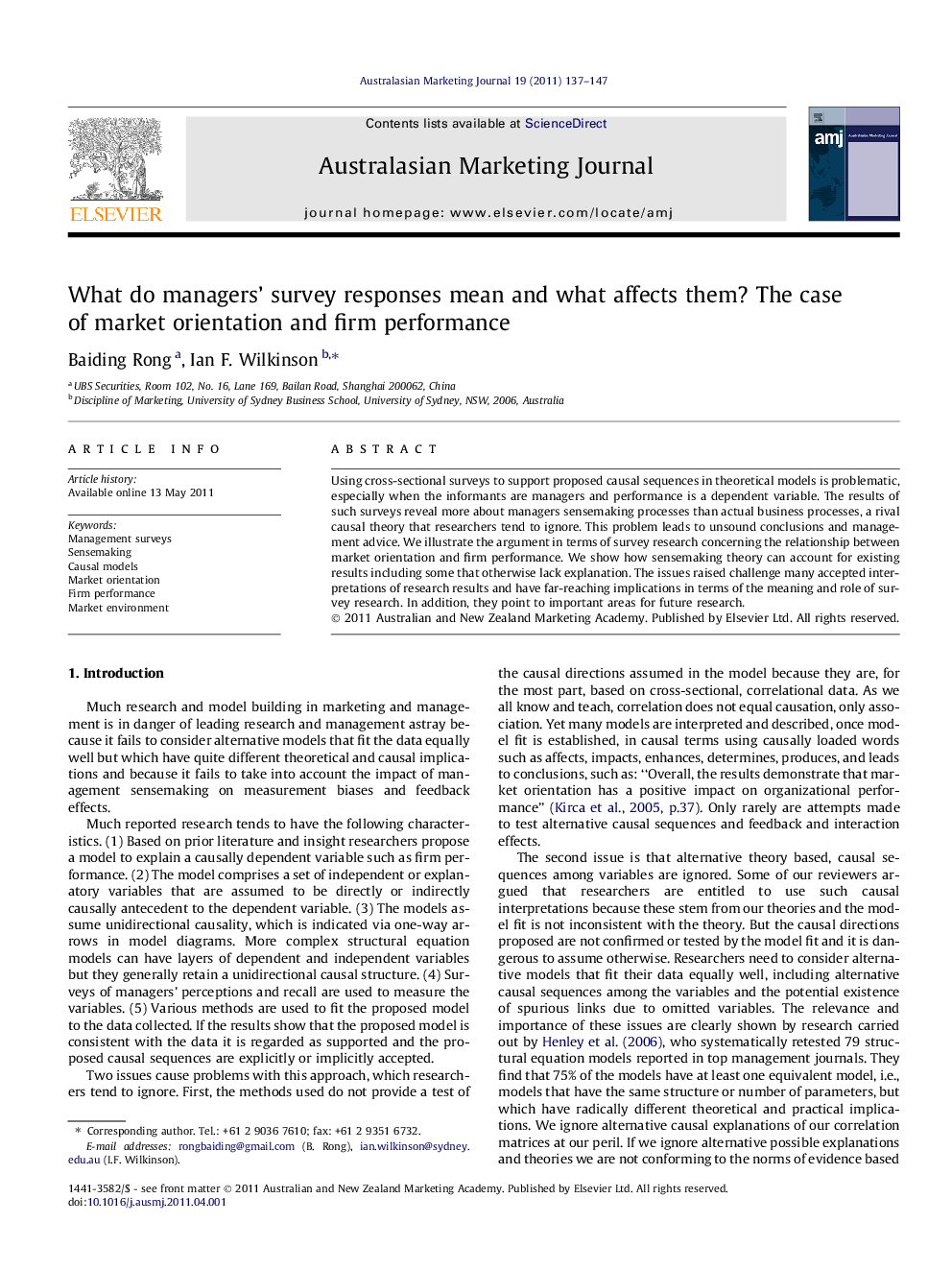| Article ID | Journal | Published Year | Pages | File Type |
|---|---|---|---|---|
| 1027155 | Australasian Marketing Journal (AMJ) | 2011 | 11 Pages |
Using cross-sectional surveys to support proposed causal sequences in theoretical models is problematic, especially when the informants are managers and performance is a dependent variable. The results of such surveys reveal more about managers sensemaking processes than actual business processes, a rival causal theory that researchers tend to ignore. This problem leads to unsound conclusions and management advice. We illustrate the argument in terms of survey research concerning the relationship between market orientation and firm performance. We show how sensemaking theory can account for existing results including some that otherwise lack explanation. The issues raised challenge many accepted interpretations of research results and have far-reaching implications in terms of the meaning and role of survey research. In addition, they point to important areas for future research.
► Surveys tell us more about managers’ sensemaking processes than the way business systems work. ► Proposed causal links among variables in models are not confirmed through co-variance analysis. ► Alternative SEMs with different implications fit survey results equally well but are not mentioned in much published research. ► Reported survey results are better explained in terms of performance (P) driving perceptions and recall of MO and E not MO driving P moderated by E. ► These results have profound implications for future research.
